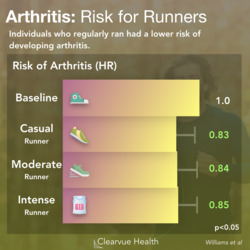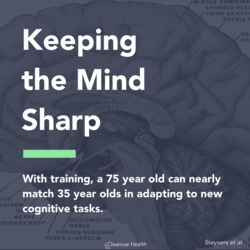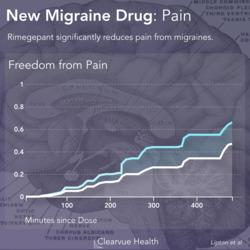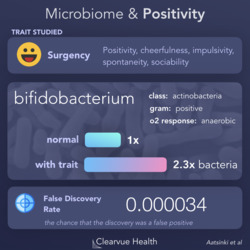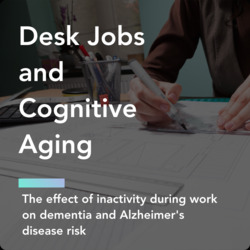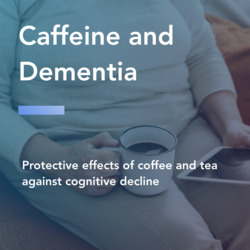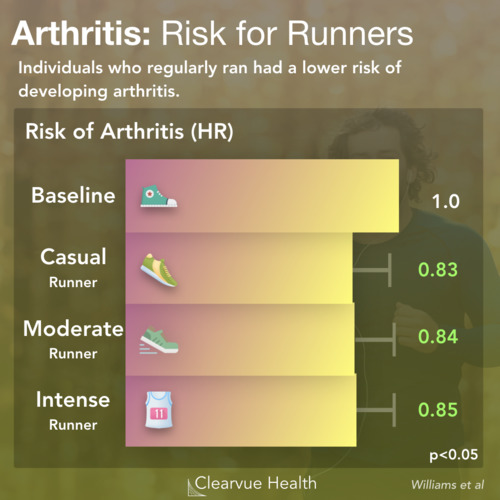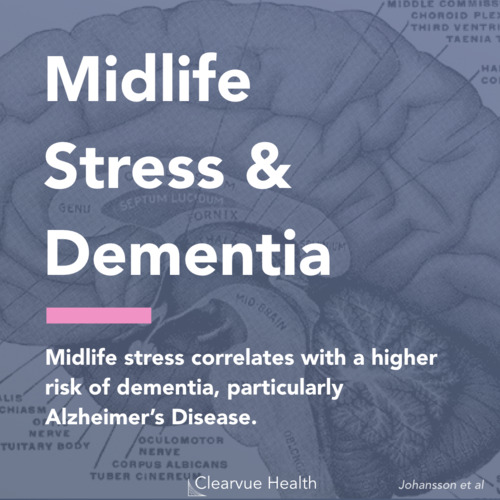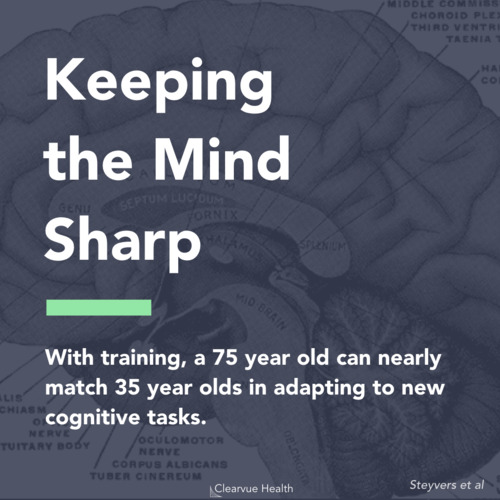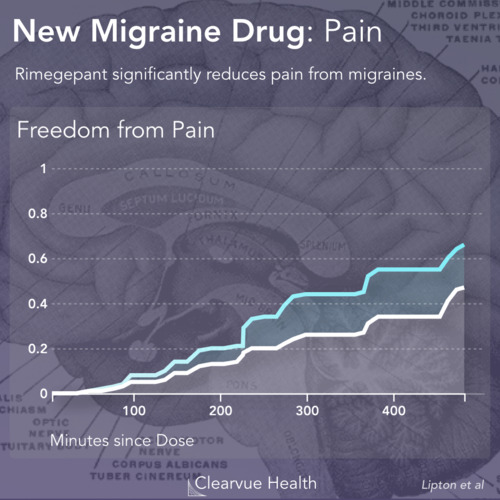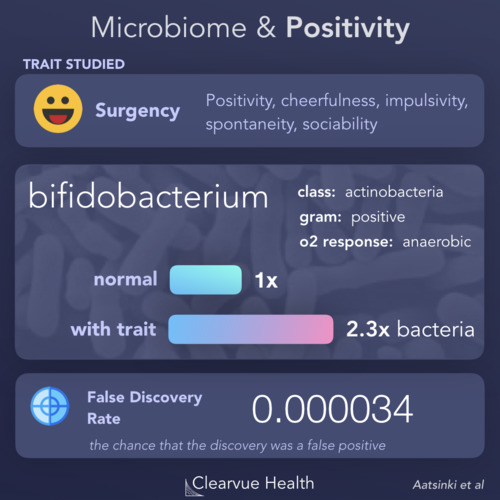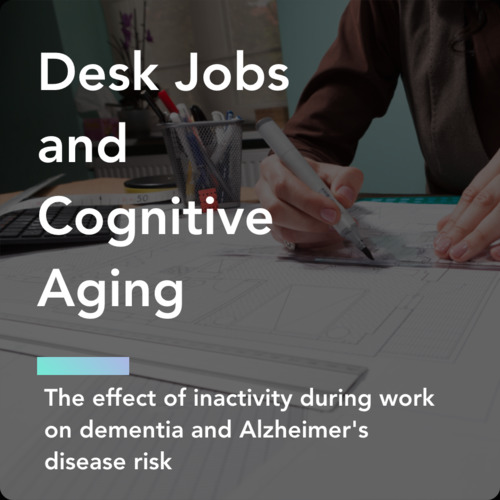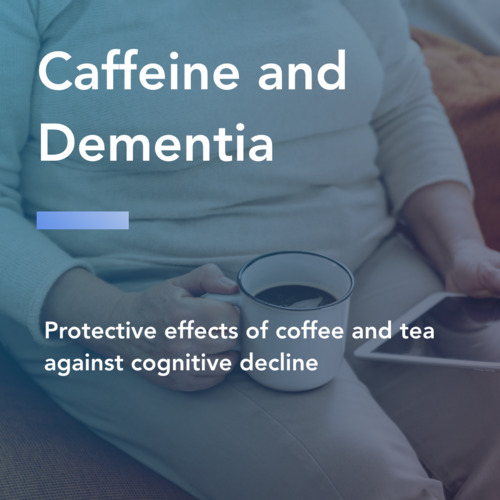NFL vs MLB Players: Neurodegenerative Disease Mortality Rates

Figure 1: NFL vs MLB Players: Neurodegenerative Disease Mortality Rates. NFL players have a significantly higher risk of neurodegenerative disease death than MLB players. The Y-axis is scaled from 0.9 with 9 representing 90% survival and 1 representing 100% survival. Data was obtained from 3,419 NFL and 2,708 MLB players who played for at least 5 seasons.
Which sport has healthier players, Baseball or American Football? When it comes to former players, a new study shows that baseball might just be the healthier of the two, though not by much.
The NFL has received significant negative publicity due to the risk of brain damage from repeated concussions. Baseball, on the other hand, is believed to be healthier as there is significantly less contact involved.
When we look at neurodegenerative disease mortality rates, we can see a clear difference in deaths from neurodegenerative disease, as expected from CTE studies. NFL players are several times more likely to die from brain diseases such as Alzheimer's Disease and other dementias.
+
Sample Size - This was one of the largest studies of retired players across both leagues.
+
Data Collection - This study used objective metrics that were relevant to health and academics. These metrics did not rely on survey data.
+
Controls - MLB players were used as a control for NFL players. This control allows researchers to compare NFL players to a similarly athletic group of players rather than the general population as a whole.
-
Potential for Bias - This method provides useful answers to the question of which sport has healthier players. However, the study had significant potential for bias when it comes to the question of which sport is better for health since we don't know whether the effect is from the sport itself or the type of player who plays the sport.
Overall Mortality Rates: NFL vs MLB Players

Figure 2: Mortality Rates: NFL vs MLB Players. After retirement, NFL players have higher mortality rates than MLB players, though the difference is small. The Y-axis is scaled from 0-1 with 0 representing 0% survival and 1 representing 100% survival. Data was obtained from 3,419 NFL and 2,708 MLB players who played for at least 5 seasons.
The differences in neurodegenerative disease are much smaller once we put this in the context of overall mortality rates. Generally, retired athletes from either sport are much healthier than the average American.
While NFL players have a higher risk of death, this difference in risk is relatively small over a lifetime.
Heart Disease Mortality: NFL vs MLB Players

Figure 3: Heart Disease Mortality: NFL vs MLB Players. NFL players have a significantly higher risk of heart disease than MLB players. The Y-axis is scaled from 0.6-1 with 0.6 representing 60% survival and 1 representing 100% survival. Data was obtained from 3,419 NFL and 2,708 MLB players who played for at least 5 seasons.
One of the most significant differences was seen in heart disease. Heart disease was far more common among NFL players than MLB players throughout their careers. Unlike the data for neurodegenerative disease, heart disease rates begin to diverge as early as a player's 30s and 40s.
This difference may be driven by differences in player composition between each sport. Football needs "heavier" players with more mass. Linemen need to be big. Baseball, on the other hand, has a greater emphasis on speed and coordination. As heart disease is driven by fat and weight, it's no surprise that NFL players have a higher risk of heart disease.
Health outcomes of 1000 MLB and NFL Players

Figure 4: Health outcomes of 1000 MLB and NFL Players. Researchers estimated the health outcomes of 1000 MLB and NFL Players. Among 1000 MLB players, there will be approximately 270 deaths, including 17 deaths from neurodegenerative disease, by age 75, based on current health statistics. Among 1000 NFL players, there will be approximately 291 deaths, including 28 deaths from neurodegenerative disease, by age 75.
In a hypothetical group of 1000 baseball players in 1000 former football players, researchers estimate that around 290 former football players will die by age 75, compared to 270 former baseball players. This difference is relatively small but significant.
Around 28 NFL retirees will pass from neurodegenerative diesease by age 75, compared to approximately 17 MLB retirees.
The Evidence for CTE
A recent study from 2018 has shown that CTE is likely far more widespread than we had previously believed. Out of 111 NFL players who donated their brains to research, 110 were found to have brain damage. CTE was also found in former college players, semipro players, and even former high school players. Read More Here
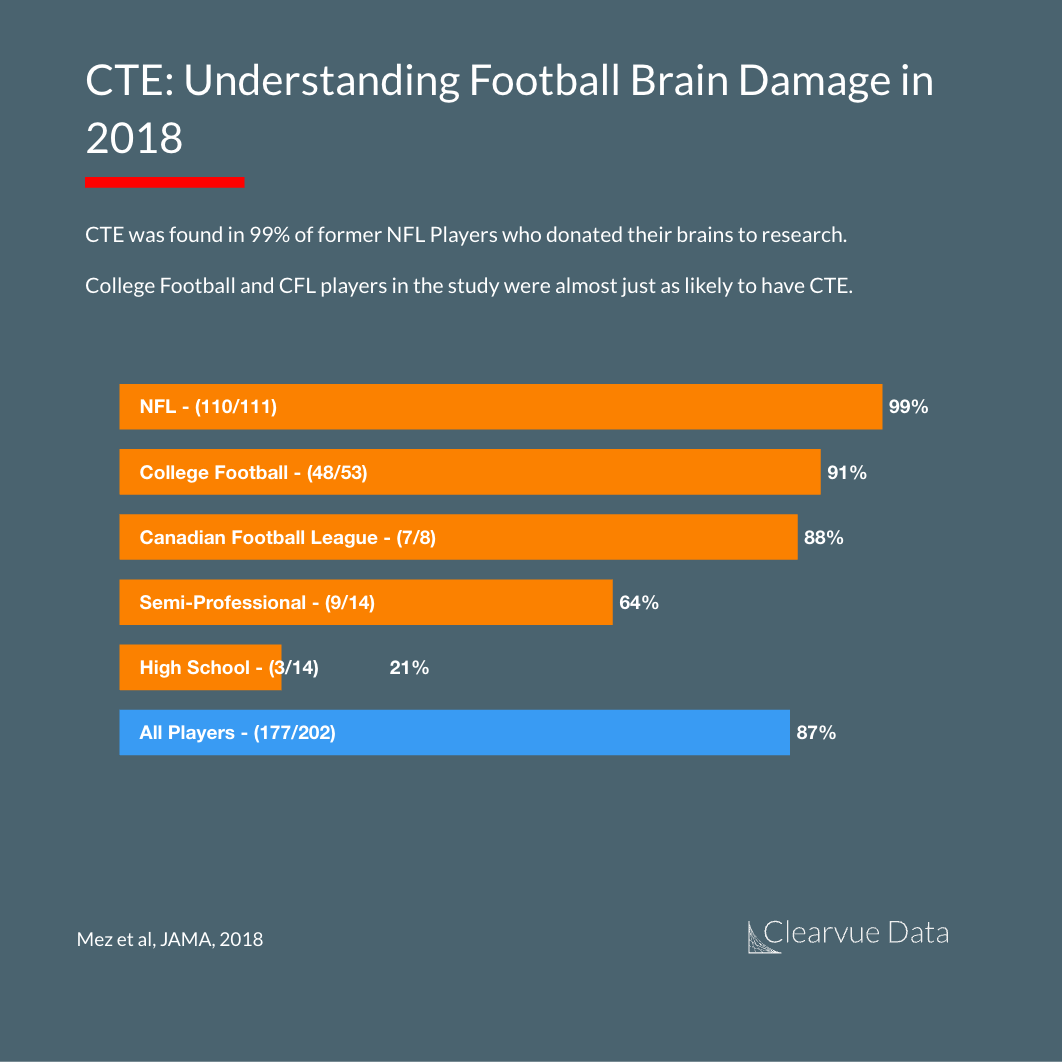
Key Takeaways
While CTE remains a real and serious issue, this data shows us that the risk of death is relatively small when compared to all health risks overall. Diseases such as heart disease are much bigger risks that we all face in old age. This study shows that athletics are generally great for health, no matter which sport you play.
This study did not address the risk of dementia as it only looked at death records. It's possible to live with dementia for many years with a lower quality of life. CTE has been shown to significantly increase the risk of dementia, which would not be apparent based on the data above.
When it comes to picking a sport, CTE is a real concern for professional players. It's clear that NFL players have a higher risk of certain brain diseases, and that it may be caused by injuries from the sport. However, there isn't a clear answer yet for high school or college players. In the grand scheme of things, CTE is just one of the many risks we face in life. Overall, playing sports is very good for health and should be encouraged.





